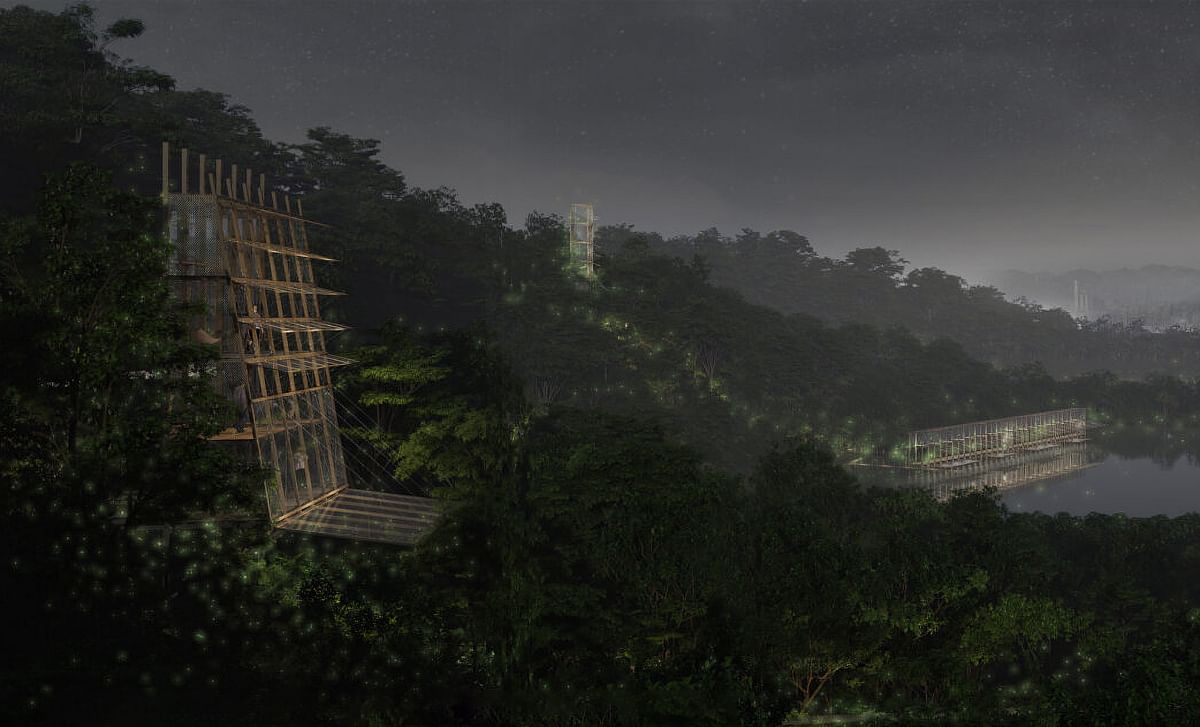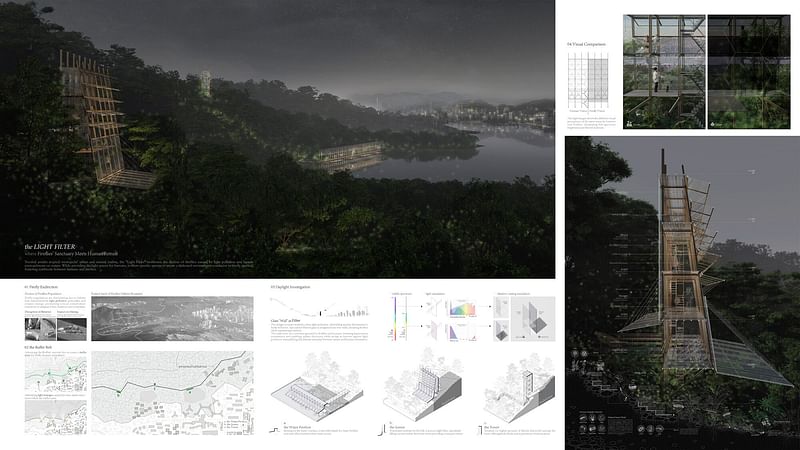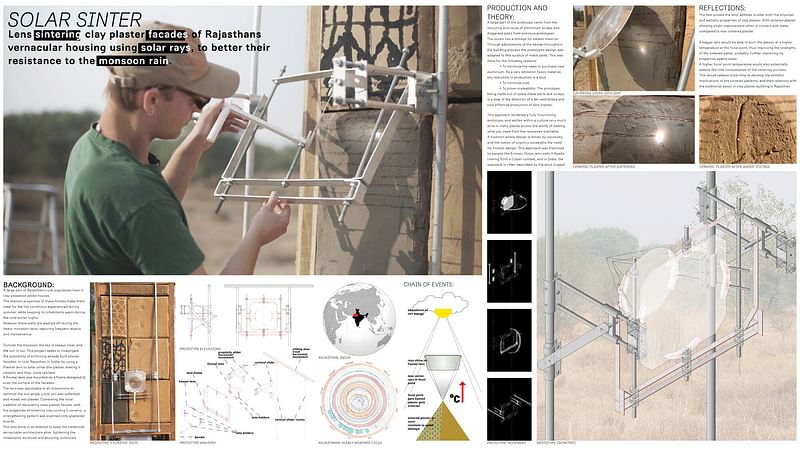Winners of the 2024 International VELUX Award explore daylight in architecture
By Alexander Walter|
Thursday, Sep 19, 2024

Related
Student teams from China and Denmark scored big in this year's International VELUX Award edition. Hosted biennially with support from the International Union of Architects, the program tasks architecture students with exploring daylight in the two categories of Daylight in Buildings and Daylight Investigations.
From a total of 468 entries, the jury narrowed the field in the contest's first phase to nine regional winners, from whom the two winning entries in their respective categories were chosen.
Global Daylight in Buildings category winner: The Light Filter
Students: Wan Zilin, Poon Gin Yong & Zang Jiayou; Teacher: Li Xiaodong (Tsinghua University, China)

Project description: "'The Light Filter' addresses the decline of fireflies due to light pollution and human encroachment on nature. This project creates daylight spaces and viewpoints for humans while using specialized filtered glass to block specific light spectra, creating a darkened environment conducive to firefly survival. The jury appreciated the project’s thoughtful approach, which extends consideration beyond humans to include other living creatures on Earth, offering a perspective that encompasses the experiences of diverse species."
Global Daylight Investigations category winner: Solar Sinter
Student: Anders Eugen Lund; Teacher: Runa Johannesen (Royal Danish Academy, Denmark)

Project description: "Inspired by Rajasthan’s rural population, who live in clay-plastered adobe houses, the project addresses a common problem: monsoon rains washing away the clay walls, necessitating frequent repairs and maintenance. 'Solar Sinter' proposes using a Fresnel lens to solar sinter the plaster, transforming the clay into ceramic, and making it more resilient. This innovation reduces the inhabitants’ workload while preserving the traditional vernacular architecture. The jury was impressed by the global impact of the project, which seeks to address a real-world problem with a practical, CO2-neutral solution. Closely aligning with the theme ‘Light of Tomorrow,’ the project reflects a strong commitment to innovation, embracing the challenges of trying and learning from failure."
RELATED COMPETITION International VELUX Award 2024


Share
0 Comments
Comment as :